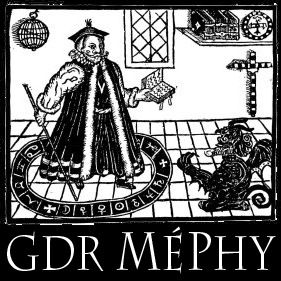Supervisors : Marc Durand, MSC, Université Paris Diderot (http://www.marcdurand.net/) Oguz Umut Salman, LSPM, Université Paris 13 (http://oguzumutsalman.org/)
PROJECT:
A fundamental question in materials science is identifying the microscopic origin of plasticity. Why do materials display plastic rather than elastic response and can we predict when this will occur ? An improved understanding of plastic deformation is important in a wide range of amorphous materials, such as metallic and polymeric glasses, foams, granular materials, colloids, and emulsions.
In molecular materials with crystalline order, plastic behavior is understood in terms of defect nucleation and dynamics. For amorphous materials, a description in terms of topological defects is not possible due to the inherent structural disorder. Therefore identifying and characterizing local plastic events in amorphous materials is essential for a complete understanding of their structural and mechanical properties. Experimentally, the challenge is identifying systems for which the microscopic events are directly observable. This is one of the main advantages of mesoscopic systems, such as foams, and the reason for the interest in making connections between mesoscopic systems and molecular materials.
Foams are interesting as a model for atomic or molecular systems with tunable structural disorder (either quenched of evolving on large time scales) and interactions between units (from pairwise to many- body interactions). Foams are also a model for other soft cellular materials such as emulsions or confluent biological tissues: these systems are constituted of highly deformable (yet almost incompressible) units (bubbles, drops, cells,. . . ). Interfacial energy is the key ingredient in the cohesion and the rigidity of such systems, often constituted solely of fluids.
The proposal aims to bring a unified approach in the understanding of plastic behavior, for both molecular and cellular materials, with various degrees of disorder (from crystalline to amorphous). We will use in conjunction complementary numerical and theoretical models to study the plasticity of two-dimensional foams and compare it with the plasticity of atomic solids, either crystalline or amorphous.
SCIENTIFIC ENVIRONMENT:
The recruited post-doc will benefit from a world-class interdisciplinary environment, both within the MSC and LSPM labs which developed expertise in numerical and theoretical modelling of heterogeneous media.
SKILLS:
We seek motivated researchers, with theoretical and computational expertise. Candidates should have a background in computer simulation, statistical mechanics, or condensed matter. Postdoctoral position is for a period of one year, with estimated starting date January 2019.
CONTACT:
Interested candidates can apply by sending their CV (including publication list) and a short research statement (with plans and motivations) by email to marc.durand@univ-paris-diderot.fr with subject: « Application UNIPLAS ».

 Mécanique et Physique
Mécanique et Physique
 Activités passées
Activités passées